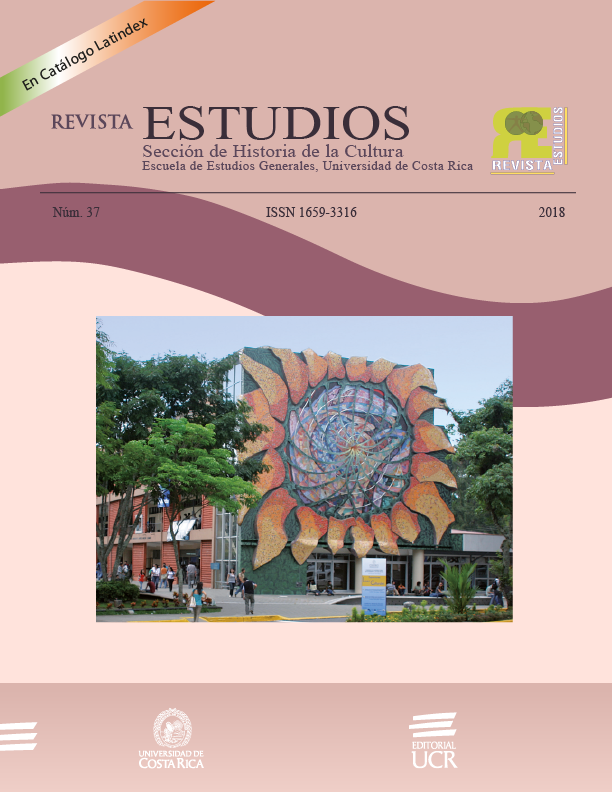Abstract
This article deals with the influence of the Protestant Reform in relation to pedagogy. Aspects such as the origins of the concept of “Christian freedom”, proposed by Luther, in jewish, early Christian and Rennaissance thought of philosophers such as Erasmus are aborded. The theological context of the Middle Ages and the critics towards it made by Luther’s pedagogical approach, based on the idea of “freedom”, are also analysed. The influence of the reformer on theology and philosophy is studied as well, leading to a reflexion on the different types of Christianity that have been brought to Latin America. In a continuous way, the work analyses the influence of Lutheran thought on the formation of Modernity.
References
Atkinson, J. (1987). Lutero y el nacimiento del protestantismo. Madrid: Alianza.
Aldridge, J. W. (1966). The Hermeneutics of Erasmus. Richmond: John Knox.
Armstrong, K. (2015). Historia de la Biblia. Barcelona: Debate.
Barrera, J. (1993). La Biblia Judía y la Biblia Cristiana. Madrid: Herder
Baudrillard J. (2008). El pecto de Lucidez o la inteligencia del Mal. Buenos Aires: Amorrortu.
Bazadre, C. (1964). Historia del Perú III. Lima: EMEP.
Beck, U. (1998). ¿Qué es la globalización? Barcelona: Paidós.
Bentley, J. H. (1983). Humanist and Holy Writ. Princeton: Princeton University Press.
Bonhoeffer, D. (2007). Jesucristo: Historia y misterio. Madrid: Trotta.
Bonilla, P. (2018). Consulta telefónica sobre la traducción del Nuevos Testamento de Erasmo. Inédito. Alajuela.
Bouyer, L. (1954). “Erasmus in Relation to the Medieval Biblical Tradition”, en The Cambridge History of the Bible. Cambridge: Cambridge University Press.
Canals, F. (2002). Historia de la filosofía medieval. Barcelona: Herder
Carvajal, A. (2012). Derechos Humanos. San José: Guayacán.
Clouse, R. (1978). Dictionary of the Christian Church. Zondervan: Grand Rapidas.
Descartes, R. (1997). Principios de la filosofía. México: Porrúa.
Dolan, J. P. (1964). The Esential Erasmus. New York: Merician.
Escobar, S. (2012). En busca de Cristo en América Latina. Buenos Aires: Kairós.
Escuela de Estudios Generales. (1978). Antología de fundamentos de filosofía. San José (CR.): EUCR.
Fernández, C. (1990). Los filósofos del renacimiento. Madrid: BAC.
Giroux, H. (1996). Placeres inquietantes. Barcelona: Paidós.
Hansel, G. (1998). Exploraciones Talmúdicas. Madrid: Biblioteca Nueva-
Hanson, R. P. C. (1959). Allegory and Event: A Study of the Sources and Significance of Origen's Interpretation of Scripture. London: SCM.
Hegel, F: (1998). Lecciones sobre la filosofía de la historia. Madrid: Aguilar.
Huizinga, J. (1957). Erasmus and the Age of Reformation. New York: Haper and Row.
Huisman, D. y Verge,z A. (2002). Historia de los filósofos. Madrid: Tecnos.
Jones, R. (1985). The Great Reformation. Downers Grove: Inter Varsity.
Kant, E. (1980). Crítica del Juicio. México: Fondo de Cultura económica.
Kaufmann, T. (2015). Martín Lutero: Vida, mundo, palabra. Madrid: Trotta,
La Biblia Dios habla hoy (2002). Corea: Sociedades bíblicas unidas.
Kessler, J. (2010). Historia de la evangelización en el Perú. Lima: Puma.
Le Goff, J. (2003). En busca de una nueva Edad Media. Barcelona: Paidós.
Le Goff, J. (2016). La Baja Edad Media. Madrid: Siglo XXI.
Lutero, M. (2008). Escritos políticos. Madrid: Tecnos.
Lutero, M. (1977). Lutero. Obras. Salamanca: Sígueme.
Lutero, M. (1998). Comentarios de Martín Lutero a los Romanos I. Barcelona: Terrasa.
Lutero, M. (1998). Comentartios de Martín Lutero a los Gálatas II. Barcelona: Terrasa.
Mackay, J A. (1993). El otro Cristo español. México DF. CUPSA.
Mackay, J. (1970). Realidad e idolatría del cristianismo contemporáneo. Buenos Aires: Aurora.
Nelson, W. (2012). Historia del Protestantismo en Costa Rica. San José (CR.): AIINDEF.
Nietzsche, F. (1973). El nacimiento de la tragedia. Madrid: Aguilar.
ckham, G. (2014). Sobre el gobierno tiránico del Papa. Madrid: Tecnós.
Olien, J. C. (1965). Christian Humanism and the Reformation: Selected Writings of Erasmus. New York: Harper and Row, 1.
Papert, S. (1980). La máquina de los niños. Barcelona: Paidós.
Platón. (1977). El Fedro, Obras Completas. Madrid: Aguilar.
Ramírez S. (2017). “Corrupción de mayores”, en Periódico La Nación. San José, p. 20 a.
Rincón, A. (1983). Lutero y el humanismo. Revista: Ideas y valores, 33 (63).
Román, G. (2017). “El mundo en un instante”, en Periódico La Nación. San José, p. 20 a.
Rouseau, J. J. (1980). El Contrato social. Madrid: Mestas.
S.A. (2002). La Biblia ecuménica. Madrid: Edelvives.
S.A. (2002). La Biblia Dios habla hoy. Miami: Sociedades Bíblicas Unidas.
Safranski, R. (2000). Heidegger y su tiempo. Barcelona: Tusquets.
Schatz, K. (1999). Los concilios ecuménicos. Madrid: Trotta.
Smalley, B (1952). The Study of the Bible in the Middle Ages. New York: Oxford.
Savater, F. (1974). El poder de educar. Madrid: Ariel.
Surburg, R.F, (1954). “El significado de la Hermenéutica de Lutero para la Reforma Protestante”, en Concordia Theological Monyhly, 24.
Souriau, E. (1998). Diccionario de Estética. Madrid: Akal.
Stott, S. (2011). Identidad evangélica. Buenos Aires: Certeza.
Valdecantos, A. El saldo del espíritu. Madrid: Herder.
Vega, A. (2010). El despertar de la ciudadanía. Heredia (CR): EUNA.


